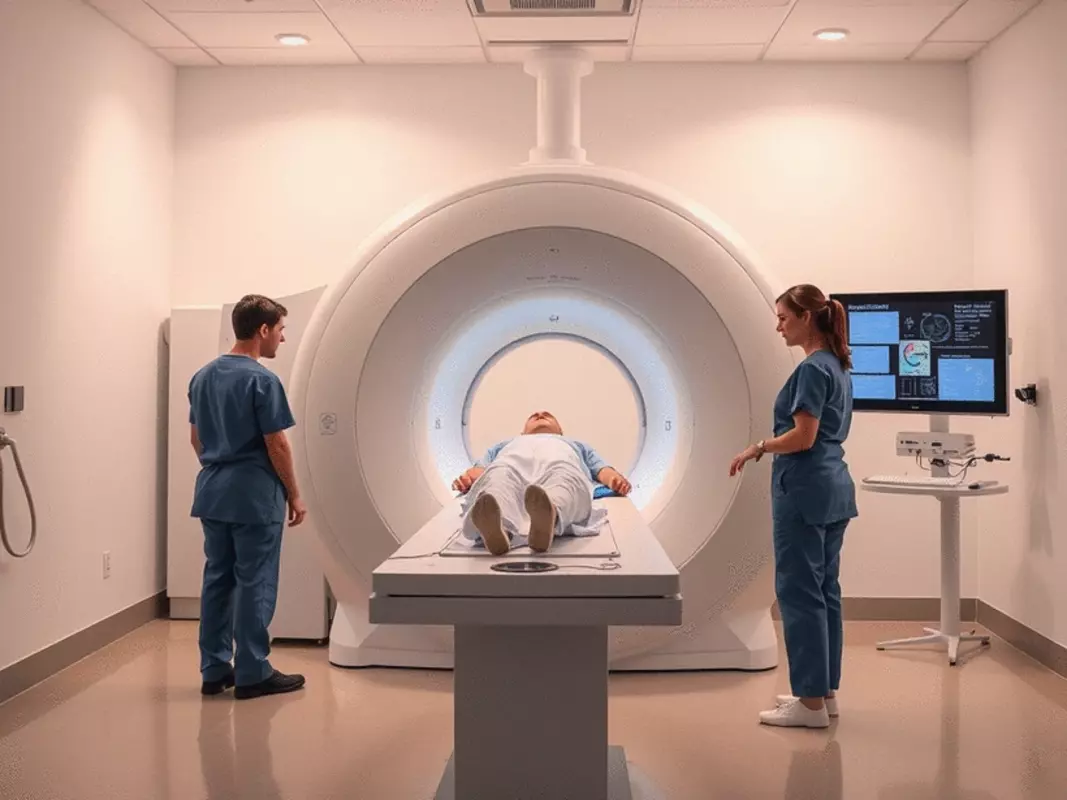Understanding MS Diagnosis Emotions

As we delve into the emotional impact of an MS diagnosis, consider how these feelings can shape the journey ahead. Understanding, support, and advocacy can significantly influence emotional well-being for those navigating this complex condition.
What You Will Learn
- The initial emotional responses to an MS diagnosis often include shock, fear, and uncertainty.
- Patient perspectives provide unique insights that enhance the understanding of emotional challenges faced by individuals with MS.
- Advocacy plays a crucial role in empowering patients, offering education, support systems, and tools for self-advocacy.
- Sharing experiences fosters community and encourages open dialogue about mental health and emotional well-being.
- Utilizing support resources such as local groups, online communities, and professional counseling can aid in emotional healing.
Understanding the Emotional Journey of an MS Diagnosis
An MS diagnosis brings a complex range of emotions. The visual below highlights the common emotional phases and key support avenues for patients.
Initial Emotional Impact: The Diagnosis Phase
- Shock & Anger: Overwhelming initial reactions.
- Fear & Uncertainty: Concerns about the future and disability.
- Isolation: Feeling alone in the journey.
Key Support Avenues: Fostering Resilience
- Support Groups: Connecting with peers.
- Professional Counseling: Tailored coping strategies.
- Advocacy & Education: Empowerment through information.
Benefits of Shared Experiences: Community & Understanding
- Reduces Isolation: Fosters a sense of belonging.
- Increases Awareness: Educates others about MS.
- Encourages Dialogue: Promotes mental health conversations.
Moving Forward: Hope & Empowerment
- Resilience is Possible: Many thrive despite diagnosis.
- Stay Informed: Research and clinical trials.
- Advocate for Self: Take control of health journey.
The Emotional Impact of an MS Diagnosis: Understanding Patient Perspectives
Receiving a diagnosis of multiple sclerosis (MS) can turn your world upside down. It often comes with a whirlwind of emotions that can impact your overall emotional well-being. Understanding these feelings is crucial for both patients and their families as they navigate this challenging journey. At Symptoms of MS, we believe that addressing emotional health is just as important as managing physical symptoms.
Many patients experience a mix of shock, fear, and uncertainty when they first learn about their condition. Recognizing and validating these emotions is essential for fostering a supportive environment. As a neurologist with over a decade of experience, I’ve seen how deeply emotions can affect a patient’s journey and overall quality of life.
Introduction to Multiple Sclerosis and Emotional Well-Being
Multiple sclerosis is a complex neurological condition that affects not only the body but also the mind. When diagnosed, individuals may feel an array of intense emotions that can significantly alter their daily lives. This connection between MS and emotional health is often overlooked, yet it is vital for effective management and understanding of the disease.
- Emotional Turmoil: The initial shock can lead to feelings of hopelessness.
- Fear of the Unknown: Concerns about the future and potential disability can weigh heavily.
- Isolation: The feeling of being alone in this journey can lead to emotional distress.
By acknowledging these emotional challenges, we can better equip patients and their families to face the journey ahead. At Symptoms of MS, we strive to provide resources that promote emotional healing alongside physical care.

Why Patient Perspectives Matter in Understanding MS
Listening to patient experiences brings valuable insights that research and statistics cannot wholly capture. Every patient's journey is unique, and understanding these personal narratives can illuminate the emotional landscape of MS. This is essential for developing a comprehensive care approach that includes both medical and emotional support. For instance, research highlights the importance of patient perspectives in improving treatment strategies and quality of life for individuals with MS.
- Empathy and Connection: Hearing from other patients fosters a sense of belonging.
- Shared Experiences: Personal stories can validate feelings of fear and anxiety.
- Building Trust: Understanding patient perspectives helps healthcare providers to tailor their approaches.
At Symptoms of MS, we encourage sharing and discussing these perspectives to create a supportive community. By amplifying these voices, we can foster a culture of empathy and understanding that is crucial for emotional healing.
The Role of Patient Advocacy in MS Management
Patient advocacy plays a significant role in the emotional and physical management of multiple sclerosis. Advocates and support networks can empower patients to take control of their health journey, ensuring their voices are heard within the healthcare system. The impact of patient advocacy in chronic conditions like MS is well-documented, showing improved patient outcomes and well-being.
- Education: Advocates help provide crucial information about MS and treatment options.
- Support Systems: They create networks that allow patients to share resources and experiences.
- Empowerment: Advocates encourage patients to advocate for their needs in medical appointments.
By engaging with advocacy groups, patients can gain a stronger sense of agency, which can positively affect their emotional well-being. At Symptoms of MS, we aim to be a trusted resource in this advocacy landscape, providing information and support that empower patients and their families.
We Want to Hear From You!
How has your emotional journey been since your MS diagnosis? Your experiences can provide insight and comfort to others. Share your thoughts below:
Frequently Asked Questions (FAQs) About MS and Emotional Well-Being
- What are the common emotional responses to an MS diagnosis?
- Initial reactions often include shock, anger, fear, and uncertainty about the future. Feelings of isolation can also be common.
- Why are patient perspectives important in understanding MS?
- Patient perspectives offer unique, personal insights that complement medical data. They foster empathy, build trust between patients and healthcare providers, and validate shared experiences, which is crucial for comprehensive care.
- How does patient advocacy help individuals with MS?
- Advocacy empowers patients by providing education on MS and treatment options, establishing supportive networks, and encouraging self-advocacy in medical settings. This helps patients feel more in control of their health journey.
- What are the benefits of sharing experiences for MS patients?
- Sharing experiences helps reduce feelings of isolation, fosters a sense of community, increases awareness about MS, and encourages open dialogue about mental health and emotional well-being among those affected.
- What resources are available for emotional support after an MS diagnosis?
- Resources include local support groups, online communities (like PatientsLikeMe), professional counseling, and organizations such as the National MS Society and the Multiple Sclerosis Association of America (MSAA) which offer educational materials and access to mental health professionals.
Summary of Insights and Emotional Impacts of MS Diagnosis
As we explore the emotional landscape of an MS diagnosis, it's vital to recognize the myriad feelings patients experience. The journey through diagnosis is often fraught with uncertainty, marked by emotional reactions that vary widely from one individual to another. Sharing these patient perspectives not only enriches our understanding but also fosters a sense of community among those affected by MS.
Reflecting on the emotional impacts, we see common themes emerge: shock, anger, and fear often give way to acceptance and, ultimately, resilience. Acknowledging these emotions can be the first step toward healing. It’s essential to remember that each person’s journey is unique and valid, and engaging with these narratives can guide others as they navigate their own paths.
The Importance of Sharing Patient Perspectives
Sharing personal stories can be empowering for both patients and their loved ones. It creates a space for empathy and understanding, reminding us that we are not alone in our struggles. Here are a few reasons why sharing these perspectives matters:
- Fosters Community: Connecting with others who have experienced similar challenges can help reduce feelings of isolation.
- Increases Awareness: Personal narratives can shine a light on the complexities of living with MS, encouraging greater understanding among family and friends.
- Encourages Open Dialogue: Sharing experiences can facilitate important conversations about mental health and emotional well-being in the context of MS.
By amplifying patient voices, we contribute to a more compassionate healthcare environment that prioritizes emotional health alongside physical treatment.
Encouragement to Seek Support and Share Experiences
As a neurologist deeply embedded in the MS community, I encourage you to seek support actively. Whether through support groups, one-on-one therapy, or community forums, connecting with others can provide invaluable insights and emotional relief. Sharing your experiences could not only benefit your own well-being but also offer hope to someone else navigating similar challenges.

Remember, reaching out for help is a sign of strength! It’s crucial to embrace the resources available to you, knowing that support is always within reach. Here are some avenues to consider:
- Local Support Groups: Many communities offer group sessions where you can connect with others facing MS.
- Online Communities: Websites and social media platforms host various forums where you can share experiences and gain support.
- Professional Counseling: A mental health professional can provide tailored strategies to cope with the emotional impact of MS.
Engaging with these support systems can pave the way for healing and resilience, making the journey a little lighter.
Take Action: Resources for MS Patients and Their Families
Where to Find Help: Support Groups and Mental Health Resources
Finding the right resources is crucial in managing the emotional aspects of MS. At Symptoms of MS, we strive to provide comprehensive information to empower patients and their families. Here are some helpful resources:
- National MS Society: Offers a wealth of information, including local support group listings.
- MSAA (Multiple Sclerosis Association of America): Provides educational resources and access to mental health professionals.
- Online Platforms: Websites like PatientsLikeMe connect individuals with shared experiences.
Utilizing these resources can significantly enhance your understanding and management of MS, leading to a more balanced emotional state.
Final Thoughts on Coping with an MS Diagnosis and Moving Forward
Receiving an MS diagnosis can feel overwhelming, but remember that there is a path forward. The emotional responses you experience are valid, and taking the time to process them is essential. Surround yourself with supportive people, engage with resources, and don’t hesitate to seek professional help when needed. The journey may not be easy, but you have the strength to navigate it.
As you move forward, hold on to the hope that resilience is possible. Many individuals find ways to thrive, despite their diagnosis, and you can too!
Research Studies and Clinical Trials: Staying Informed on MS
Lastly, staying informed about ongoing research and clinical trials can be empowering. Engaging with new findings not only keeps you updated on the latest treatment options but can also offer a sense of control over your health journey. Always discuss any new information with your healthcare team to understand how it may apply to your situation.
At Symptoms of MS, we are committed to keeping our community informed about the latest in MS research. Embrace your journey, and remember that support and knowledge are available every step of the way!
Recap of Key Points
Here is a quick recap of the important points discussed in the article:
- Recognizing Emotional Responses: Patients often experience shock, fear, and uncertainty upon diagnosis, which can significantly affect their emotional well-being.
- Importance of Patient Perspectives: Listening to patient experiences fosters empathy, connection, and trust, essential for effective care.
- Role of Advocacy: Patient advocates provide education, support systems, and empowerment, which are critical for managing both physical and emotional aspects of MS.
- Seeking Support: Engaging in support groups, online communities, and professional counseling can greatly aid emotional healing and resilience.
- Utilizing Resources: Resources like the National MS Society and MSAA are invaluable for education and support, helping patients navigate their journeys.









